Easy Building Vocabulary Worksheets Activities With Answers for Ages 6-8
5 filtered results
-
From - To
Explore our engaging "Easy Building Vocabulary Worksheets" designed specifically for children ages 6-8! This collection of interactive activities aims to enhance vocabulary development through fun and educational tasks. Each worksheet comes with clear instructions and an answer key to support young learners. From exciting word searches to creative fill-in-the-blanks, these activities are perfect for classroom use or at-home learning. Help your child develop essential language skills while sparking their enthusiasm for reading and learning. Start building your child's vocabulary today with our easy-to-use worksheets that make learning a delightful experience! Ideal for early grade educators and parents alike!
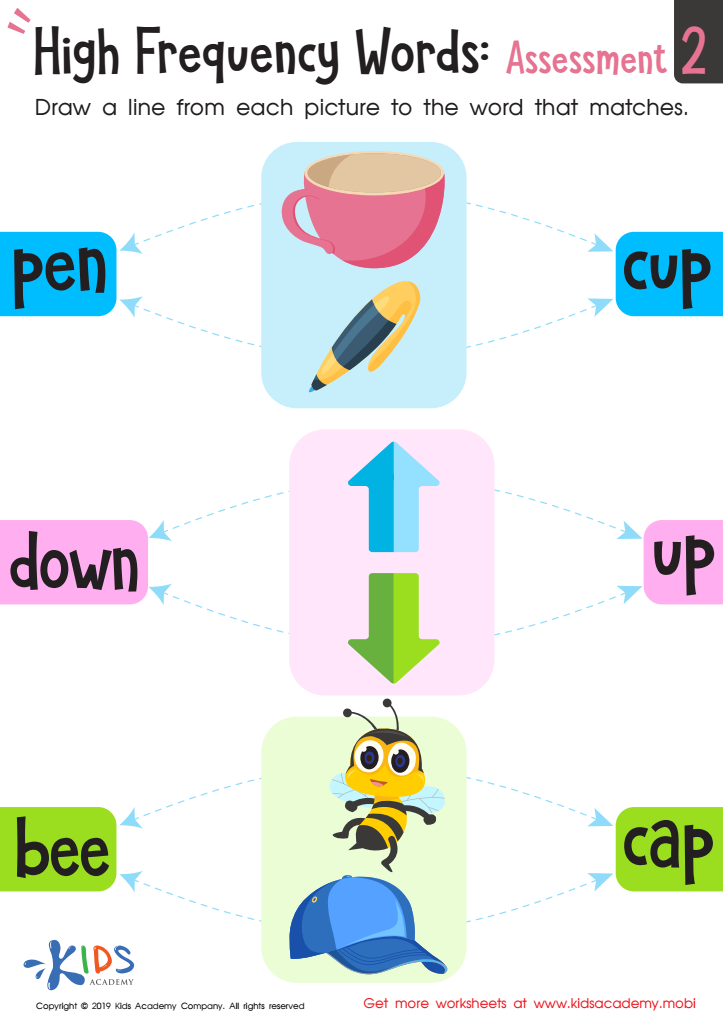

High Frequency Words: Assessment 2 Worksheet
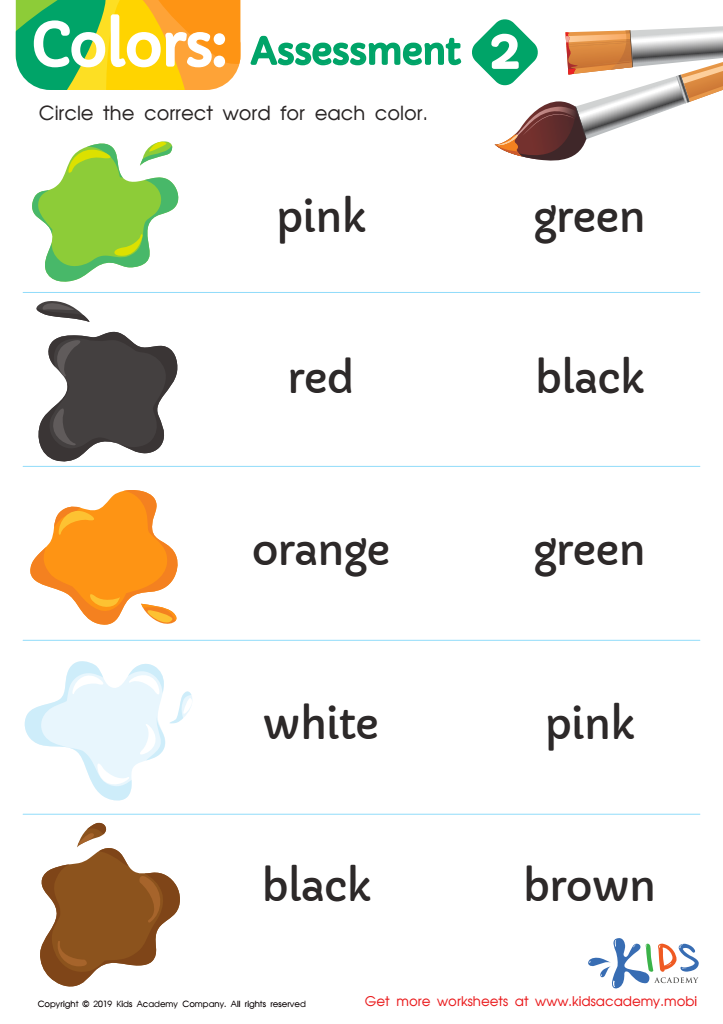

Colors: Assessment 2 Worksheet
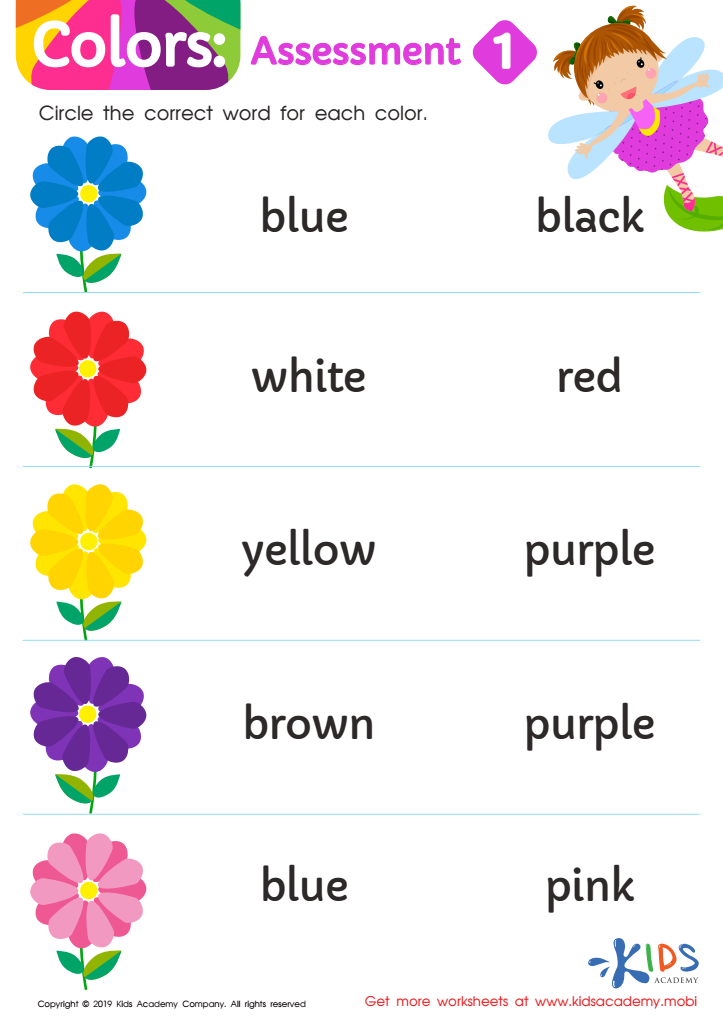

Colors: Assessment 1 Worksheet
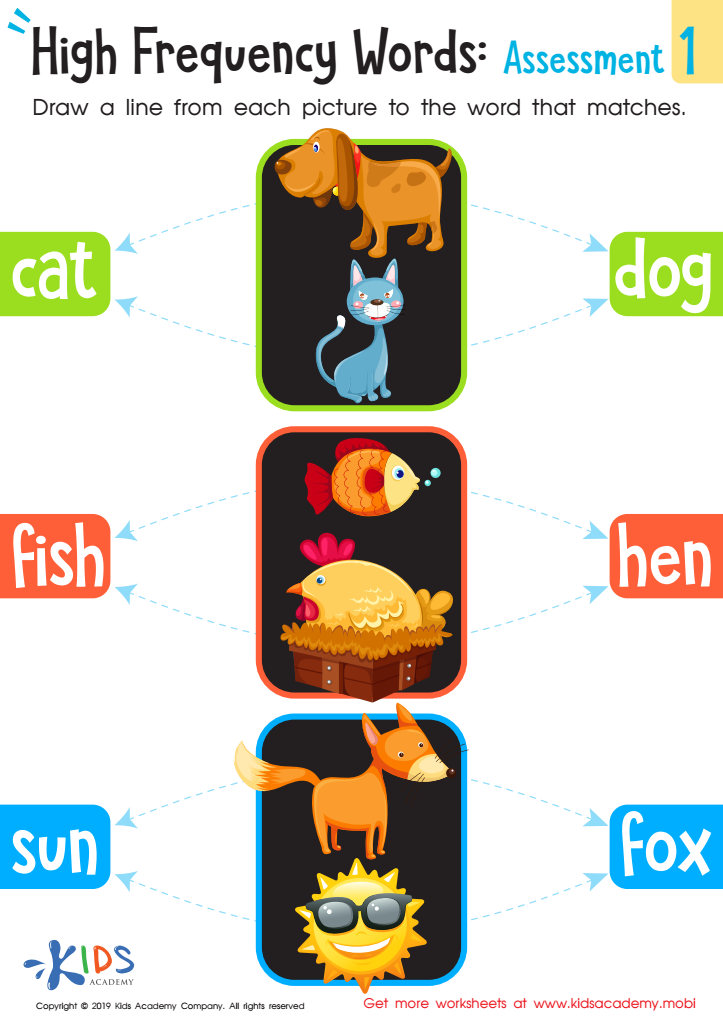

High Frequency Words: Assessment 1 Worksheet
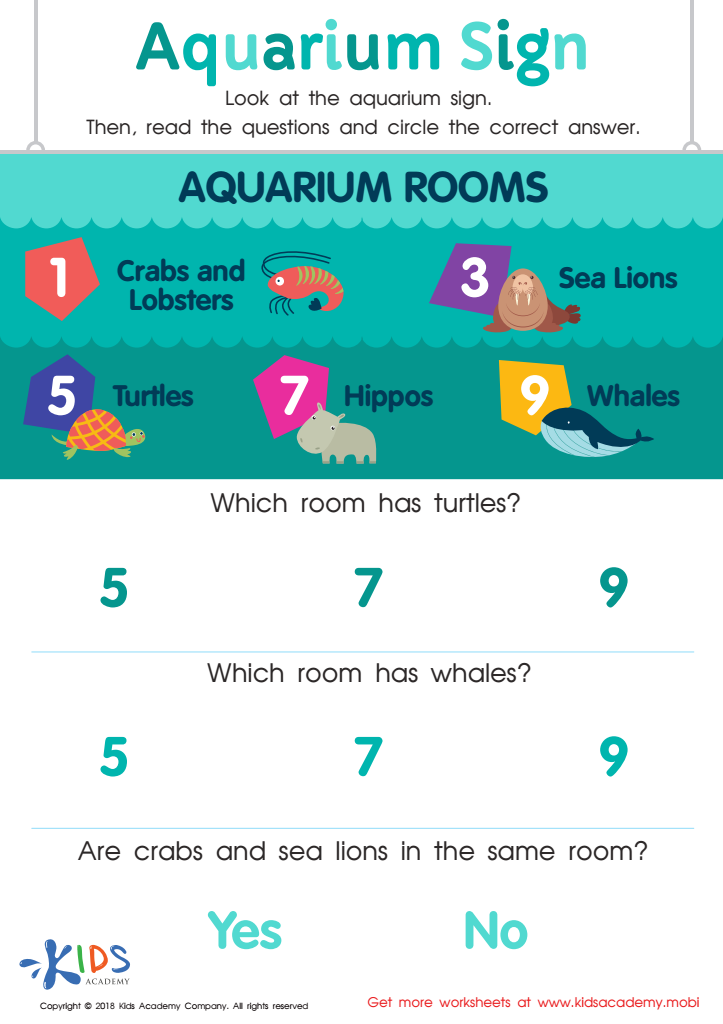

Assessment: Aquarium Sign Worksheet
Parents and teachers should prioritize easy building vocabulary activities for children aged 6-8 because vocabulary acquisition is foundational for literacy and overall academic success. This age group is crucial for developing essential language skills, and engaging vocabulary activities can significantly enhance their understanding and use of language in various contexts.
Easy vocabulary exercises often introduce new words in a fun and interactive manner, promoting retention and encouraging children to use these words in everyday conversations. By incorporating games, storytelling, and visual aids, these activities cater to different learning styles, fostering a love for words and reading.
Moreover, a rich vocabulary not only aids comprehension in reading and writing tasks but also boosts a child's confidence in expressing themselves verbally. Children who are equipped with diverse vocabulary are better prepared for more advanced concepts encountered in later grades.
Supporting vocabulary development also encourages critical thinking and creativity, as children learn to articulate their thoughts and ideas effectively. When parents and teachers engage with children through structured vocabulary activities, they foster an environment of learning that nurtures curiosity, collaboration, and communication, setting a strong foundation for future educational endeavors.
 Assign to My Students
Assign to My Students





.jpg)















